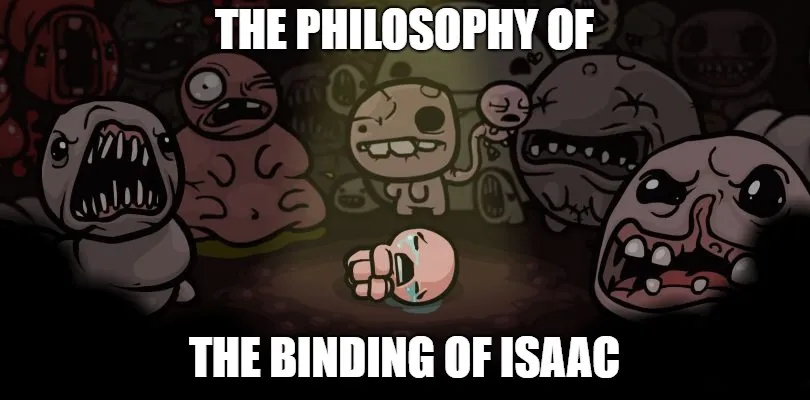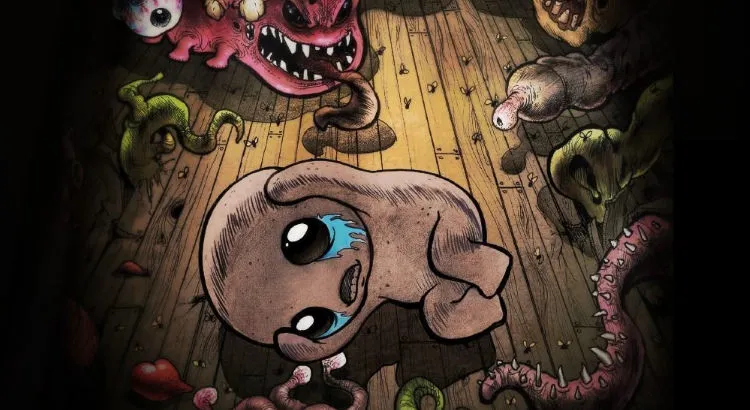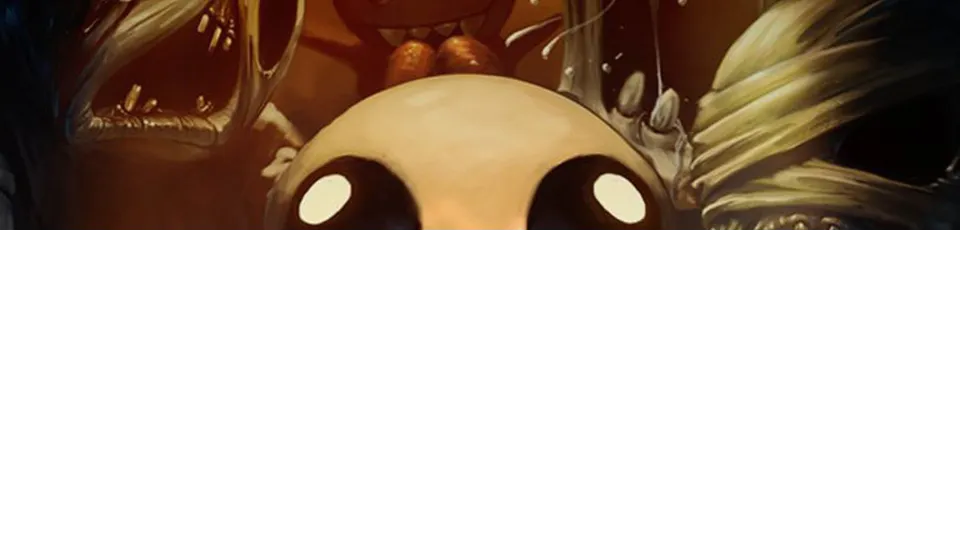
I would imagine at this point that anyone who is regularly following me has probably seen that I love this game. I've been streaming myself playing some of the hardest 'end game' content for a couple of weeks now, but today I want to talk about the philosophy hidden throughout the game. To give you some background if you are unfamiliar, The Binding of Isaac is a game designed and created by Edmund McMillen who also created some other notable games such as Super Meat Boy and Gish. He's an indie developer and I consider The Binding of Isaac his magnum opus.
The general concept of the game is based around the parable from the bible about God telling Abraham to sacrifice Isaac. The game kind of flips the parable on its' head and you play from Isaac's perspective. There are some notable differences, like God tells Isaac's mother to kill him through a series of brainwashing public broadcast shows and there's some obvious tie-ins throughout the game that would lead the player into the moral examination of abortion and whether or not the fetus has consent to be aborted. All in all, from my perspective, the game poses the question, "When does religion take things too far?"

I've written in the past about not being a fan of religion at all and I tend to view it as the earliest form of government. Throughout the game there are the overt and obvious nods to extremism in the bible and the game has subtle nods to things like sodomy, homosexuality, and S&M. There are tarot cards, different religious books, the seven deadly sins, and numerous other obvious references to highly controversial ideological things, but if you can look past all of the obvious "triggering" things and see what I think it's all about, you'll find a game that is fundamentally about philosophy and finding compassion for other human beings and ourselves.
Every time a game is started in a roguelike, it's going to be different. This is a subtle nod to life and the fact that we are all unique. Throughout each run, there is going to be conflict that we have no control over and there will be choices that we can choose to accept or walk away from. Sometimes things that we perceive as bad can end up being the thing that saves us or helps us through some other problem, just like the opposite is likely to happen in many situations. It's a great game for learning patience and acceptance and it teaches these things through controversial triggering imagery and sometimes forcing you to embrace the unknown and take a chance on something you don't want or may be unsure about.

There are many other subtle philosophical ideas in the game, such as spirituality and some basic metaphysics, but honestly I'd be writing a book if I tried to break down all of these things as it's quite literally an endless game. That perhaps is my favorite part of it all. It simultaneously rewards progression by expanding the "in game universe," while also giving the player the impression that none of it really matters because it's all temporary. The final boss is always some variation of ourselves once we get past the "blaming our parents" lesson that is the first ending of the game. Every time you start up the game, it's going to be something different.
The game has many characters to unlock and they are all as different as each individual play through of the game. I've played as a demon baby that is a devout and faithful being carrying a bible, I've played as the average guy that makes a deal with the devil for tremendous power, and there are countless others that all get blessed or cursed throughout the game for one reason or another. This game, much like life, just is what it is and each play through feels very much like that. Hopefully this post helps explain some of the basic reasons why I think this game is very philosophical and why I enjoy it so much. Namaste.